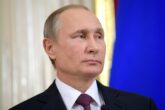February 01, 2020
NATO: The challenge from within
On 4 December 2019, NATO leaders gathered in London to discuss pressing security issues and to mark the 70th anniversary of the Alliance’s founding. Analysts on both sides of the Atlantic were rightfully worried about what would transpire over the day-and-a-half of meetings, given the number of irritants that could have derailed the entire event. Luckily, it went off with only a little bit of drama — for the most part, allied leaders gathered for the traditional family photo, stressed the importance of collective defence, and talked about issues such as hybrid threats, military readiness, and defence spending. This was largely to be expected: over the last few years NATO countries have tried to put on a united front when necessary.
While this is all well and good, there is no hiding the fact that today NATO is grappling with major strategic challenges. Unfortunately, these challenges aren’t posed only by outside actors like Russia, or trying to answer big-picture questions like NATO’s role in new and emerging security domains. Instead, some of NATO’s most pressing challenges are fundamental, and they are emanating from within.
Democratic backsliding
The first and perhaps most dangerous internal challenge today is democratic backsliding amongst some of its own members, namely Turkey and Hungary. Since a failed coup attempt in July of 2016, Turkish President Recep Tayyip Erdogan has cracked down on freedoms within the country and begun a slide toward authoritarianism. Today, Turkey leads the world in numbers of jailed journalists, its courts work in tandem with Erdogan’s regime, elections are neither free nor fair, and its “democratic institutions” have no real impact.1 Moreover, Turkey recently purchased a Russian-made S-400 missile defence system, and in October launched an invasion into Kurdish-held northern Syria. Both moves have resulted in strong condemnation from fellow NATO allies.
Read more from the Raisina Debates.
- “Turkey leads the world in jailed journalists”, The Economist, January 16, 2019. ↩
More from CNAS
-
The Eurasian Century: Hot Wars, Cold Wars, and the Making of the Modern World with Hal Brands
For more than 100 years, the continent of Eurasia has played a central role in global geopolitics. In the 20th century, numerous authoritarian powers from Germany under Kaiser...
By Andrea Kendall-Taylor, Jim Townsend & Hal Brands
-
Putin’s Fight Won’t End With Ukraine
In an essay for Foreign Affairs, titled “Putin’s Point of No Return,” Andrea Kendall-Taylor, senior fellow and director of the Transatlantic Security Program at the Center for...
By Andrea Kendall-Taylor
-
Trump’s Callout of Russia’s Vladimir Putin Is Raising Eyebrows
President Trump is threatening sanctions and tariffs on Russia if Putin doesn't reach an agreement to end the war in Ukraine. Some are surprised, considering Trump's affinity ...
By Andrea Kendall-Taylor
-
In Russia's Perceived War with the West, Arms Control is Collateral Damage
Russia seemingly perceives previously established arms control agreements as elements of the broader Western-dominated political and security order that it aims to overturn....
By Nicholas Lokker




